
MATTERHORN shows durvalumab enhances survival in early-stage gastric and GEJ cancer, revolutionizing treatment approaches for patients.

MATTERHORN shows durvalumab enhances survival in early-stage gastric and GEJ cancer, revolutionizing treatment approaches for patients.

Molecular testing identifies high-risk early-stage NSCLC patients for adjuvant chemotherapy, significantly improving disease-free survival rates post-surgery.

An ASCO session on quality services shows how patient and caregiver engagement is crucial to gain better outcomes and cost savings from symptom monitoring efforts.
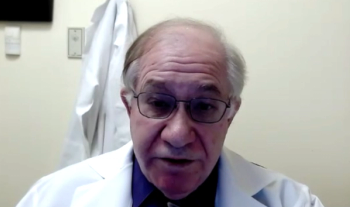
Vincent Picozzi, MD, medical oncologist and director of the Pancreaticobiliary Program at Virginia Mason, discusses findings from the PANOVA-3 trial, which represents a significant breakthrough in locally advanced pancreatic cancer (LA-PAC) treatment.

Studies presented at ASCO reveal promising treatments for triple-negative and ER-positive breast cancer, highlighting the benefits of sacituzumab govitecan and vepdegestrant.

Manmeet Ahluwalia, MD, MBA, FASCO, chief of medical oncology, chief scientific officer, and deputy director of the Miami Cancer Institute of Baptist Health South Florida, discusses a groundbreaking clinical trial for non-small cell lung cancer (NSCLC) brain metastases.

Sanjay Goel, MD, MS, professor of medicine at Robert Wood Johnson Medical School and medical oncologist at Rutgers Cancer Institute, anticipates groundbreaking data at the American Society of Clinical Oncology (ASCO) 2025 meeting, with plenary sessions spotlighting research that could immediately impact cancer care.

ASCO 2025 will showcase cutting-edge advancements in precision medicine, artificial intelligence, and biomarker-driven therapies, revolutionizing cancer treatment and diagnostics.

Abstracts published ahead of the 2025 American Society of Clinical Oncology Annual Meeting found persistent ovarian cancer survival disparities among racial and ethnic subgroups, particularly within disaggregated Asian American, Native Hawaiian, and Pacific Islander populations.

Drugs first approved to treat diabetes, which later became a top sellers to aid weight loss, are associated with reduced risk of obesity-related cancer.

Assistance from artificial intelligence can potenially increase the number of patients eligible for treatment for HER2-low breast cancers.

Patients with extensive-stage small cell lung cancer (SCLC) experienced clinically meaningful benefits with lurbinectedin plus atezolizumab vs atezolizumab in the phase 3 IMforte trial, according to findings being presented at the ASCO Annual Meeting.
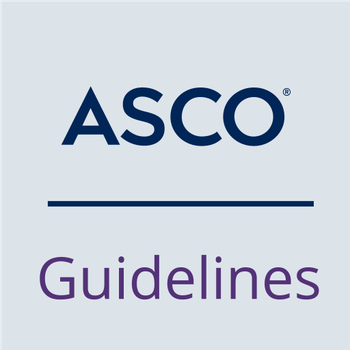
ASCO and Google Cloud unveil an AI tool that streamlines access to clinical guidelines, enhancing decision-making for oncologists in patient care.

We recently spoke with Tycel Phillips, MD, associate professor, Division of Lymphoma, Department of Hematology & Hematopoietic Cell Transplantation, City of Hope, about his team’s interim analysis of their dose-escalation study of glofitamab against relapsed/refractory B-cell non-Hodgkin lymphoma.
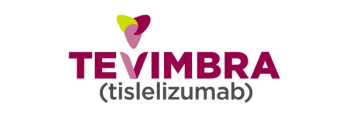
An interview with Mark Lanasa, MD, PhD, BeiGene senior vice president and chief medical officer for solid tumors, conducted at ASCO 2024.

Ishwaria Subbiah, MD, of SCRI Oncology Partners, discusses new findings presented at ASCO 2024. This interview will appear in the annual ASCO recap issue of Evidence-Based Oncology.

A study finds limited changes in hospice utilization, highlighting challenges in real-world implementation.

A poster presented at the 2024 American Society of Clinical Oncology annual meeting argued the benefits that Medicaid expansion can bring to patients with melanoma.
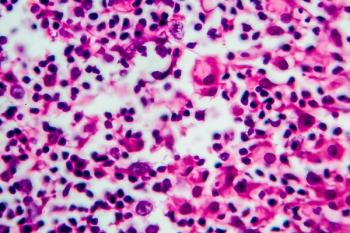
The treatment regimen not only significantly improved progression-free survival (PFS) for patients with advanced stage classic Hodgkin lymphoma but was also better tolerated compared with a 20-year-old regimen being used.

Two posters presented at the 2024 American Society of Clinical Oncology annual meeting revealed real-world data on the outcomes and management strategies associated with melanoma during pregnancy.

This investigation used data from The US Oncology Network on trends in lung cancer stage when patients present for care.

The results of the 3-year follow-up show meaningful improvement in overall survival (OS) and progression-free survival (PFS) for tislelizumab plus chemotherapy compared with placebo plus chemotherapy.

At the 2024 American Society of Clinical Oncology annual meeting, an abstract presenting real-world data stressed the need for further research regarding the association between immunosuppressant medication and the development of skin cancer.

One patient died during this study, which used PET/CT, flow cytometry, and next-generation sequencing to define measurable residual disease negativity.

The TRITON study is evaluating tremelimumab/durvalumab/chemotherapy vs pembrolizumab/chemotherapy in non–small lung cancer (NSCLC) with STK11 and/or KEAP1 and/or KRAS mutations.

The global burden of liver cancer is rising, and public health efforts for prevention, vaccination, and treatment to address underlying etiologies are needed, according to research presented at ASCO 2024.

Findings from ASCO 2024 suggest deruxtecan (T-DXd) may become a preferred first-line treatment for patients with hormone receptor (HR)-positive, HER2-low metastatic breast cancer that progressed after endocrine therapy.

Several experts that we spoke with for ASCO 2024 share their thoughts on why the American Society of Clinical Oncology annual meeting is so important to the field of oncology.

Coverage of a session on antibody drug conjugates from the 2024 American Society of Clinical Oncology Annual Meeting.
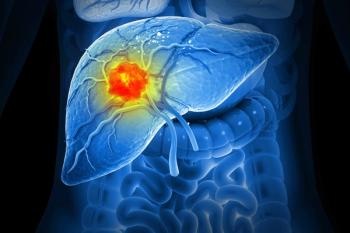
In the final overall survival analysis of the phase 3 CARES-310 trial, frontline camrelizumab plus rivoceranib continued to show clinically meaningful survival benefits vs sorafenib for hepatocellular carcinoma (HCC).

259 Prospect Plains Rd, Bldg H
Cranbury, NJ 08512
© 2025 MJH Life Sciences®
All rights reserved.
